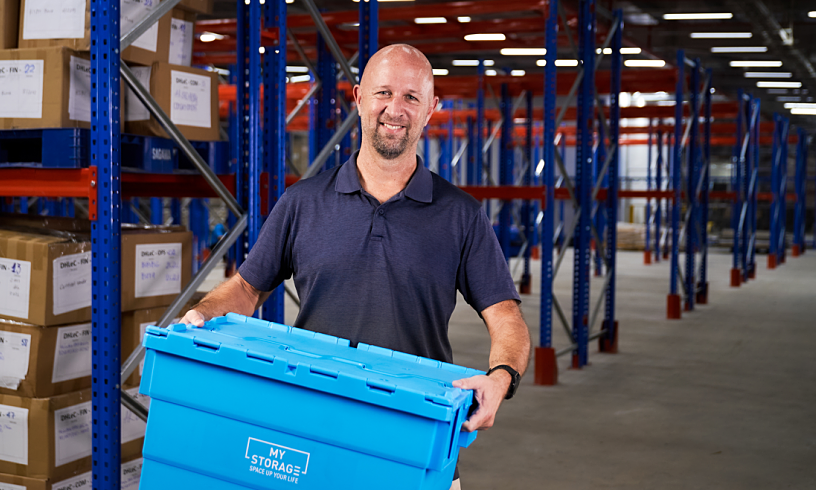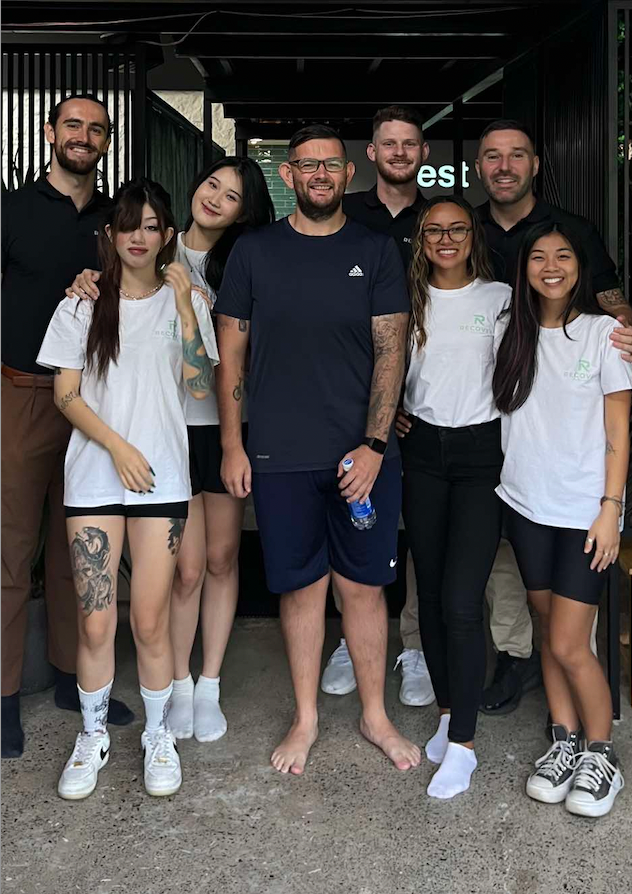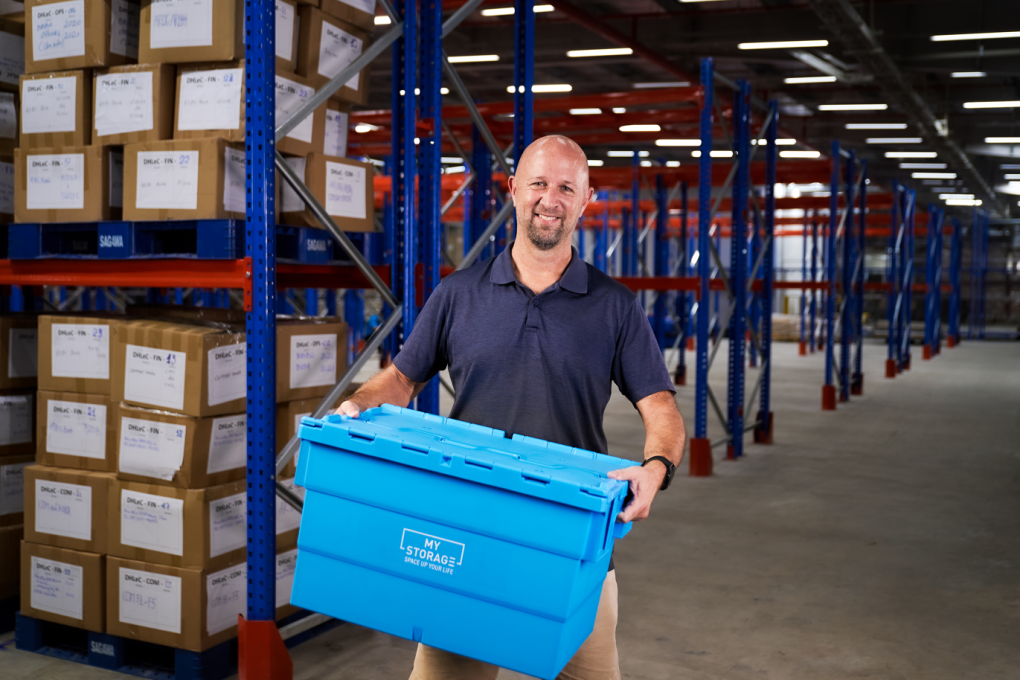Why Foreign Entrepreneurs Are Betting Big on Vietnam for Their Startups

The British entrepreneur Graeme didn't anticipate that his 2023 visit to Vietnam would present him with a business prospect compelling enough to make him decide to remain there.
After retiring from professional soccer at just 21 because of an injury, he first thought about starting a retail venture in Bali, Indonesia. However, his acquaintances advised against this idea, mentioning the cutthroat nature of the local marketplace.
While visiting Vietnam in 2023, he acknowledged its promise as a prime location both for living and working. Given its substantial populace of 100 million, with three-quarters below the age of 30, coupled with an extensive shoreline conducive to commerce, the nation seemed well-positioned for expansion.
"The living expenses and startup costs in this area are notably low," states the 37-year-old individual.
Initially, he launched both a café and an Airbnb venture. Later, through sheer serendipity, he identified a gap in the market for post-injury sports rehabilitation services, which were underdeveloped in Vietnam. Reflecting on his personal journey of recuperation, he recognized a chance to bring advanced sports rehabilitation technologies into the nation’s healthcare landscape.
He joined forces with Jordan, who holds a degree in sports science, to start a new enterprise. By mid-2024, they managed to import gear from both the United Kingdom and the United States and established Recover, a sports rehab facility tailored for amateur competitors, located in Ho Chi Minh City. According to him, Vietnam offered significant advantages such as cheaper business registration fees, reduced labor costs, and lower operating expenses compared to more developed markets like the UK and Australia.

|
|
Graeme (on the far right) alongside staff members at the facility located in Thao Dien Ward, Ho Chi Minh City. The image was provided by Graeme. |
However, he faced significant cultural and operational hurdles, notably concerning human resources. He observed that Vietnamese staff members tended to be reticent when collaborating with foreign colleagues. A considerable number of them frequently reported to work tardily, which delayed the center's start time—this was untenable within the service sector. Complicated banking processes further complicated matters related to payment processing and maintaining accurate financial records.
Several months afterward, he grew his team by bringing aboard Burmese members and sought legal advice from his Vietnamese spouse.
He states, 'Operating a business without local ties would be extremely challenging around here.' He adds that significant obstacles include linguistic differences and distinct business practices.'
After six months Recover stabilized, and he began planning an expansion into Hong Kong.
Graeme is just one of numerous international business owners opting for Vietnam, particularly Ho Chi Minh City, as the foundation for their new ventures. As reported by StartupBlink—a leading index of startup ecosystems globally—as of 2024, Ho Chi Minh City was home to 182 foreign-founded startups, which constitutes 52% of all such enterprises nationwide. Within a span of three years, the city significantly climbed up the rankings, moving up by 68 positions to secure the 111th spot amongst the premier startup centers around the globe.
This expansion is driven by improvements in Vietnam’s business environment. According to the 2020 World Bank Doing Business report, Vietnam was placed at 70th position among 190 economies based on business friendliness. Significant changes such as simplifying company registration processes and decreasing processing times to less than a month have made it easier for international investments to flow into the country.
Vinnie Lauria, the founder of the venture capital firm Golden Gate Ventures, which supports startups across Southeast Asia, notes that Vietnam's entrepreneurial ecosystem has thrived over the last ten years. According to him, significant progress has been made within the nation’s startup environment. attracted foreign entrepreneurs In educational technology, financial technology, healthcare technology, and digital transformation.
Vietnam's robust economy, consistent educational framework, and a youthful, driven labor force render it an appealing locale for businesses, according to him. Additionally, the nation's dynamic street scene, prevalent motorcycle culture, and varied culinary offerings enhance its allure, as per his remarks.
Different from any other nation in Southeast Asia, Vietnam boasts a distinctive energy—chaotic yet orderly in its characteristic manner.
In 2018, American entrepreneur Aric Austin encountered this situation during a visit with his brother. Having previously served as an executive at a media start-up in New York City, United States, he subsequently established and then sold two businesses to Glam Media and Yahoo in Germany.
"I wanted to undertake a fresh challenge in Vietnam ," he says.

|
|
Aric Austin at a warehouse in Ho Chi Minh City, March 2025. Image provided by Austin. |
When moving from Berlin to Ho Chi Minh City, he faced difficulties finding suitable storage space. His landlord couldn’t offer any suggestions, which led him to notice the surprising lack of individual storage options in Vietnam compared to nearby countries like Thailand, Malaysia, Singapore, and Hong Kong, where such facilities were already quite common.
He states, 'I was aware that Vietnamese customers would ultimately request this service.'
Following a year of extensive research, he introduced My Storage, a personal storage enterprise, in 2019. However, establishing customer recognition demanded significant work. An initial client shared with him how grateful they were for his service since before discovering it, they resorted to renting a hotel room merely to accommodate their furnishings during house renovations.
Austin points out that this demonstrated the presence of demand, yet many individuals remained oblivious to the existing solutions. Altering how consumers view these options might require anywhere from five to ten, or possibly as much as fifteen years.
He noticed a significant distinction between Western and Vietnamese consumers: in the West, customers actively look for services, whereas in Vietnam, companies need to approach them directly. invest heavily in marketing to increase consciousness and generate interest.
When My Storage first launched, it stood alone as the sole provider of its type in Vietnam. However, now multiple rivals, both domestic and foreign enterprises, have joined the fray. This surge in competition is seen optimistically by him, as he believes it will expedite public understanding and assist clients in recognizing the advantages of individual storage solutions.
Lauria stresses that thriving startup ecosystems rely heavily on diversity. According to a Kauffman Foundation report, more than half of the billion-dollar firms in Silicon Valley were started by immigrants, highlighting their significant contribution to innovation and economic advancement.
However, Lauria recognizes that international entrepreneurs continue to encounter obstacles in Vietnam. Although business registration has become more streamlined, scaling up operations remains complicated, particularly when it comes to adhering to regulations, recruiting staff, and managing remotely.
He encourages Vietnam to embrace a more welcoming stance towards foreign entrepreneurs and investors, using Singapore as an exemplary model—a startup haven that draws international talent. Visa regulations ought to be made more straightforward as well. To make it easier for company registration, he states.
Tackling these problems will pave the way for startups and local talent to make significant contributions to business achievements.

Post a Comment for "Why Foreign Entrepreneurs Are Betting Big on Vietnam for Their Startups"